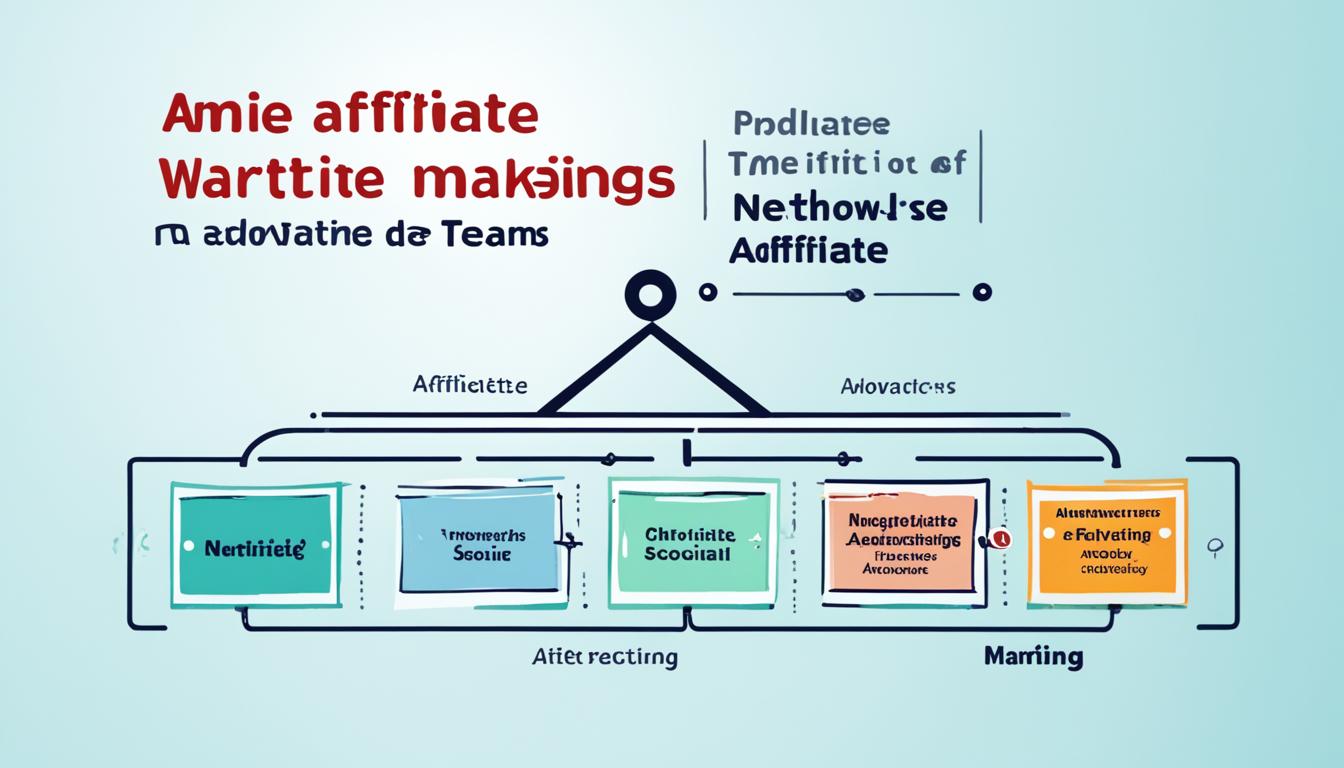Welcome to our comprehensive guide comparing Salesforce Marketing Cloud and Marketo, two leading marketing automation platforms. Whether you’re a marketer looking to optimize your campaigns or a business owner seeking the right tool, we’ll dive into the differences between Salesforce Marketing Cloud and Marketo, explore their features, pricing, integration capabilities, and advantages.
As you navigate this guide, you’ll gain a clear understanding of which platform aligns best with your marketing automation needs. Let’s explore the key differences and features of Salesforce Marketing Cloud and Marketo, helping you make an informed decision for your business.
Key Takeaways:
- Compare Salesforce Marketing Cloud and Marketo to make an informed decision.
- Understand the differences in features, pricing, and integration capabilities.
- Explore the advantages and disadvantages of each platform.
- Consider alternative marketing automation platforms to Salesforce Marketing Cloud and Marketo.
- Choose the platform that best aligns with your marketing goals and business needs.
Overview of Salesforce Marketing Cloud and Marketo
Salesforce Marketing Cloud and Marketo are two popular marketing automation platforms utilized by enterprise companies. While Salesforce Marketing Cloud is often perceived as a Business to Consumer (B2C) platform, Marketo is predominantly considered a Business to Business (B2B) solution. However, the boundaries between B2B and B2C are becoming increasingly blurred, prompting both platforms to adapt and cater to a wider range of marketers. They offer a comprehensive suite of features that enable businesses to automate their marketing processes, deliver personalized experiences, and measure the effectiveness of their campaigns.
Both Salesforce Marketing Cloud and Marketo have their own unique strengths and capabilities.
| Platform | Strengths |
|---|---|
| Salesforce Marketing Cloud |
|
| Marketo |
|
It is essential to carefully evaluate the specific needs and priorities of your business in order to determine which platform aligns best with your marketing goals. In the following sections, we will dive deeper into the various aspects of Salesforce Marketing Cloud and Marketo, including data management, campaign orchestration, content management, usability, pricing, integration capabilities, and their respective advantages and disadvantages. By the end of this guide, you will be equipped with the knowledge to make an informed decision and select the platform that suits your organization’s requirements.
Data Management: Marketo vs Salesforce Marketing Cloud
When it comes to data management, Marketo and Salesforce Marketing Cloud take different approaches. Let’s explore how these platforms handle data, including segmentation, database structure, and flexibility.
Marketo Data Management
In Marketo, all people are treated as “leads” and are housed in a single lead database table. This approach offers simplicity in finding customer records and conducting segmentation. Marketers can easily locate and manage their leads, increasing efficiency and effectiveness in campaign targeting.
Salesforce Marketing Cloud Data Management
Salesforce Marketing Cloud, on the other hand, has a more complex data model that allows users to create custom data objects. This flexibility is beneficial for handling larger or more intricate data sets. With the ability to customize data objects, marketers can structure their data in a way that aligns with their specific requirements, providing more advanced segmentation and personalization capabilities.
However, this flexibility comes with a tradeoff. The more complex data model of Salesforce Marketing Cloud requires additional development and resources to manage. Users with extensive technical expertise and resources may find this data model advantageous for their specific needs.
In summary, Marketo’s data management approach offers simplicity and ease of use, while Salesforce Marketing Cloud’s flexible data model provides advanced segmentation capabilities for larger or more complex data sets. Consider your specific data management requirements and available resources when choosing between these platforms.
Campaign Orchestration: Marketo vs Salesforce Marketing Cloud
When it comes to campaign orchestration, both Marketo and Salesforce Marketing Cloud offer powerful tools and features to help marketers create and manage their campaigns effectively. Let’s take a closer look at how each platform approaches campaign orchestration.
Marketo Engagement Programs and Smart Campaigns
Marketo utilizes Engagement Programs and Smart Campaigns for campaign orchestration. With Engagement Programs, marketers can define various touchpoints and interactions to create personalized customer journeys. This approach allows for flexibility and customization, enabling marketers to craft email-based campaigns that cater to specific customer segments.
Additionally, Smart Campaigns empower marketers to automate their campaign workflows using triggers, filters, and actions. This automation capability streamlines the execution of campaigns, saving time and effort while improving efficiency.
Salesforce Marketing Cloud Journey Builder
On the other hand, Salesforce Marketing Cloud offers the Journey Builder tool for campaign orchestration. Journey Builder provides a user-friendly, drag-and-drop interface that enables marketers to create and manage automated multi-touch campaigns across various channels, including email and mobile.
The Journey Builder interface allows marketers to visualize the customer journey easily, making it simpler to set up and manage complex campaigns. Marketers can define different touchpoints, actions, and decision splits, creating personalized experiences at each stage of the journey.
Journey Builder also provides the ability to set goals for each campaign and track progress towards those goals. This feature helps marketers measure campaign success, identify areas for improvement, and make data-driven decisions to optimize their campaigns further.
Which Platform is Right for You?
Both Marketo and Salesforce Marketing Cloud offer powerful campaign orchestration capabilities, but they differ in terms of user experience and customization options. Marketo’s Engagement Programs and Smart Campaigns provide flexibility and in-depth customization, ideal for marketers who prefer a high level of control over their campaign workflows.
On the other hand, Salesforce Marketing Cloud’s Journey Builder offers a more intuitive interface and simplifies the process of setting up and managing complex multi-touch campaigns. Marketers looking for a user-friendly, visual approach to campaign orchestration may find Journey Builder more appealing.
Ultimately, the choice between Marketo and Salesforce Marketing Cloud depends on your specific campaign orchestration needs, preferences, and organizational requirements. Consider factors such as the complexity of your campaigns, the level of customization you require, and your team’s proficiency with campaign management tools.
Content Management: Marketo vs Salesforce Marketing Cloud
Effective content management is crucial for successful marketing campaigns. Both Marketo and Salesforce Marketing Cloud offer robust solutions for organizing and creating content tailored to your marketing strategies.
Content Organization
Marketo and Salesforce Marketing Cloud provide users with intuitive interfaces to manage and categorize their content. With Marketo, you can create folders and subfolders to structure your content library efficiently. Similarly, Salesforce Marketing Cloud’s content builder allows you to organize files using folders and tags, making it easier to locate specific assets.
Content Creation
When it comes to content creation, both platforms offer powerful editors and templates to streamline the process. Marketo provides a user-friendly visual editor, allowing marketers to create engaging emails, landing pages, and forms through a drag-and-drop interface. Salesforce Marketing Cloud’s content builder offers a similar experience, enabling users to design compelling content without any coding knowledge.
HTML/CSS Accessibility
However, if you have coding experience and prefer more extensive customization options, Salesforce Marketing Cloud has an edge. It provides users with greater accessibility to HTML/CSS codes, allowing for advanced modifications and personalized designs. Marketo’s HTML/CSS accessibility is relatively more complex, requiring a deeper understanding of the platform’s technical aspects.
Illustrating the versatility of Salesforce Marketing Cloud’s content builder, here’s an image showcasing the interface:
As you can see, the content builder in Salesforce Marketing Cloud empowers marketers to create visually appealing and interactive content to captivate their audience.
Overall, both Marketo and Salesforce Marketing Cloud provide robust content management features. While Marketo offers a more straightforward approach, Salesforce Marketing Cloud’s accessibility to HTML/CSS codes allows for more extensive customization and flexibility in content creation.
Usability: Marketo vs Salesforce Marketing Cloud
Usability plays a crucial role in selecting a marketing automation platform. A platform’s user interface and the ease of navigating its various features are critical considerations. Let’s compare the usability of Marketo and Salesforce Marketing Cloud.
Marketo Usability
Marketo offers a user-friendly interface that is relatively simpler and easier to learn. With its intuitive design and straightforward navigation, users can quickly adapt to the platform and start leveraging its features for their marketing campaigns. Marketo’s usability is highly appreciated by marketers, particularly those who prioritize ease of use.
In addition to its user-friendly interface, Marketo provides users with access to an active community. This community serves as a valuable resource for support, best practices, and tips to maximize the platform’s capabilities. With a strong community backing, users can leverage the collective knowledge and experience of Marketo experts to enhance their marketing automation efforts.
Salesforce Marketing Cloud User Interface
Salesforce Marketing Cloud has a comprehensive suite of tools and features, but its user interface can be more scattered compared to Marketo. Users may encounter separate modules for email, automation, data, content, and landing page management. While this separation offers granular control over each aspect, it can also make it more challenging for beginners to navigate the platform seamlessly.
However, Salesforce Marketing Cloud compensates for its scattered interface with robust functionalities and extensive customization options. Once users become familiar with the different modules, they can take advantage of the platform’s wide array of tools for executing complex marketing strategies.
Comparison Table
| Criteria | Marketo | Salesforce Marketing Cloud |
|---|---|---|
| User Interface | Relatively simpler and easier to learn | Scattered with separate modules for different functionalities |
| Community Support | Active community for support and resources | No dedicated community, but extensive documentation and support available |
Summary
In summary, while Marketo excels in usability with its user-friendly interface and supportive community, Salesforce Marketing Cloud offers a more robust but potentially more complex user interface. Ultimately, the choice between the two platforms should be based on the specific needs and preferences of your marketing team.
Pricing: Marketo vs Salesforce Marketing Cloud
Pricing is a crucial factor to consider when comparing Marketo and Salesforce Marketing Cloud. The cost of ownership for each platform can differ based on various factors such as the chosen solution, the number of contacts, and additional features needed.
Marketo offers flexible pricing options that can be tailored to meet the specific needs of your business. Their pricing structure allows you to customize your plan based on factors such as the number of contacts in your database and the features you require. This ensures that you only pay for what you need, which can be beneficial for businesses with smaller budgets or those looking for more cost-effective solutions.
On the other hand, Salesforce Marketing Cloud’s pricing is primarily based on the number of users and the edition you choose. This can be advantageous for businesses that require a higher number of users or have more complex marketing needs. While Salesforce Marketing Cloud may have higher upfront costs compared to Marketo, it can offer better value and scalability for larger organizations or those with advanced marketing requirements.
Comparing Marketo and Salesforce Marketing Cloud Pricing
To provide a clearer understanding of the pricing differences between Marketo and Salesforce Marketing Cloud, the following table outlines the key factors and considerations:
| Factors | Marketo | Salesforce Marketing Cloud |
|---|---|---|
| Cost Structure | Varies based on solution, number of contacts, and additional features needed. | Primarily based on the number of users and the selected edition. |
| Flexibility | Customizable plans allow you to pay for what you need. | Scalable pricing options to accommodate larger organizations or complex marketing requirements. |
| Cost of Ownership | Potential for lower upfront costs. | Higher upfront costs, but offers value and scalability for larger organizations. |
When deciding between Marketo and Salesforce Marketing Cloud, it’s essential to evaluate your marketing needs, the scale of your organization, and your budget constraints. While Marketo may offer more flexibility in pricing and lower upfront costs, Salesforce Marketing Cloud provides greater scalability and value for larger or more complex marketing operations.
Integration: Marketo vs Salesforce Marketing Cloud
Integration capabilities play a vital role in ensuring a seamless workflow and efficient data management within a marketing automation platform. Both Marketo and Salesforce Marketing Cloud offer integration options, but their capabilities differ in terms of compatibility and scope.
Marketo Integration Capabilities: Marketo provides integration with a select number of third-party applications, allowing users to connect their marketing efforts with other tools and platforms. While the number of integrations may be limited compared to Salesforce Marketing Cloud, Marketo focuses on offering robust and reliable connections with popular software and services relevant to marketing automation needs.
Salesforce Marketing Cloud Integration: On the other hand, Salesforce Marketing Cloud offers extensive integration options, including integration with Salesforce CRM, its flagship customer relationship management platform. This integration allows for the seamless synchronization of customer data between Salesforce Marketing Cloud and Salesforce CRM, resulting in unified customer experiences and streamlined data management.
The integration between Marketo and Salesforce CRM enables marketers to leverage the combined power of marketing automation and customer relationship management, allowing for better tracking and personalized marketing initiatives. With this integration, businesses can gain valuable insights into customer behavior, preferences, and engagement across different touchpoints, enhancing their marketing strategies and driving growth.
Additionally, Salesforce Marketing Cloud offers integration capabilities with a wide range of other applications, empowering marketers to connect their marketing efforts with various tools, such as analytics platforms, content management systems, e-commerce platforms, social media platforms, and more.
Comparison of Integration Capabilities
| Integration Capabilities | Marketo | Salesforce Marketing Cloud |
|---|---|---|
| Integration with Salesforce CRM | No | Yes |
| Integration with Third-Party Applications | Yes (limited) | Yes (extensive) |
| Additional Integration Options | No | Yes (various applications) |
Note: The table above provides a concise overview of the integration capabilities of Marketo and Salesforce Marketing Cloud. While both platforms offer integration options, Salesforce Marketing Cloud stands out with its integration flexibility and the compatibility it offers with its CRM solution.
Advantages and Disadvantages of Salesforce Marketing Cloud and Marketo
Both Salesforce Marketing Cloud and Marketo have their own set of advantages and disadvantages that marketers should consider when selecting a marketing automation platform.
Salesforce Marketing Cloud Advantages
- Advanced cross-channel communication capabilities
- Comprehensive reporting tools for in-depth campaign analysis
- Enhanced customer analytics to gain valuable insights
Marketo Advantages
- Easier usability, making it accessible for all skill levels
- Robust lead nurturing features to effectively engage prospects
- Cost-effectiveness, particularly beneficial for smaller businesses
When choosing between Salesforce Marketing Cloud and Marketo, it’s crucial to consider your specific business needs and priorities. The advantages of Salesforce Marketing Cloud lie in its advanced capabilities for cross-channel communication, comprehensive reporting, and customer analytics. On the other hand, Marketo offers advantages in terms of usability, lead nurturing, and cost-effectiveness, which are particularly beneficial for smaller businesses.
Ultimately, the decision between Salesforce Marketing Cloud and Marketo depends on your unique marketing goals and requirements. Consider the strengths of each platform and how they align with your business needs to make an informed choice.
Alternatives to Salesforce Marketing Cloud and Marketo
While Salesforce Marketing Cloud and Marketo are popular marketing automation platforms, there are other alternatives available that may better suit your specific requirements. Here are some alternatives worth considering:
HubSpot
HubSpot is an all-in-one inbound marketing platform that offers a wide range of features, including email marketing, lead management, social media marketing, and analytics. It is known for its user-friendly interface and comprehensive tools for driving inbound traffic and generating leads.
Pardot
Pardot, a part of the Salesforce ecosystem, is a powerful B2B marketing automation platform. It offers robust lead generation and nurturing capabilities, as well as advanced reporting and analytics. Pardot also integrates seamlessly with Salesforce CRM, allowing for efficient management of sales and marketing activities.
Eloqua
Eloqua, a product of Oracle, is an enterprise-level marketing automation platform designed for B2B marketers. It offers a wide range of features, including lead management, email marketing, campaign management, and analytics. Eloqua provides advanced segmentation and personalization capabilities, enabling marketers to deliver highly targeted and personalized messages.
ActiveCampaign
ActiveCampaign is a user-friendly marketing automation platform that caters to both B2B and B2C businesses. It offers features such as email marketing, CRM integration, marketing automation, and lead scoring. ActiveCampaign also provides advanced automation workflows and personalized messaging to help businesses drive engagement and conversions.
When considering these alternatives, it’s important to evaluate their features, pricing models, scalability, and integration capabilities to find the best fit for your business. Conduct thorough research and compare the platforms based on your specific marketing automation needs.

| Platform | Key Features | Pricing | Integration |
|---|---|---|---|
| HubSpot | All-in-one inbound marketing platform, email marketing, lead management, social media marketing, analytics | Offers both free and paid plans, pricing scales based on features and number of contacts | Integrates with various CRM systems and other third-party tools |
| Pardot | B2B marketing automation, lead generation and nurturing, advanced reporting and analytics | Offers various pricing tiers based on features and number of users | Seamlessly integrates with Salesforce CRM |
| Eloqua | Enterprise-level B2B marketing automation, lead management, email marketing, campaign management | Custom pricing based on business requirements | Provides integration options with various CRM systems |
| ActiveCampaign | Email marketing, CRM integration, marketing automation, lead scoring | Offers various pricing plans based on features and number of contacts | Integrates with popular CRM systems and other third-party applications |
Conclusion
In conclusion, Salesforce Marketing Cloud and Marketo are two highly capable marketing automation platforms that offer a range of features and advantages. When making a decision between them, it is crucial to consider various factors that impact your marketing goals and business needs.
Firstly, evaluate your data management requirements. Marketo simplifies data management with its lead-based approach, whereas Salesforce Marketing Cloud provides flexibility with its custom data objects.
Secondly, consider your campaign orchestration preferences. Marketo’s Engagement Programs and Smart Campaigns are highly flexible, while Salesforce Marketing Cloud’s Journey Builder offers a drag-and-drop interface for easy multi-touch campaign creation.
Additionally, for content management, Salesforce Marketing Cloud’s ability to access HTML/CSS codes provides customization options, whereas Marketo’s content management is relatively more complex.
Furthermore, usability and pricing are essential factors. Marketo has a simpler user interface and an active community, while Salesforce Marketing Cloud’s interface is more scattered. Pricing depends on various factors, and it is crucial to assess the scale and complexity of your marketing needs.
Lastly, integration requirements play a crucial role. Marketo offers integration with select third-party applications, whereas Salesforce Marketing Cloud provides extensive integration options, including integration with Salesforce CRM.
By evaluating these factors, you can make an informed decision and choose the platform that best suits your marketing goals and business needs.
FAQ
What are the differences between Salesforce Marketing Cloud and Marketo?
Salesforce Marketing Cloud and Marketo differ in their approach to data management, campaign orchestration, content management, usability, pricing, and integration capabilities.
Is Salesforce Marketing Cloud suitable for B2C or B2B marketing?
Salesforce Marketing Cloud is often viewed as a Business to Consumer (B2C) platform, but it has evolved to cater to a wider range of marketers, including Business to Business (B2B) companies.
How does Marketo handle data management?
Marketo treats all people as “leads” housed in one lead database table, making it simpler for finding customer records and segmentation.
How does Salesforce Marketing Cloud handle data management?
Salesforce Marketing Cloud has a more complex data model with the flexibility to create custom data objects, making it suitable for handling larger or more complex data sets.
How does campaign orchestration differ between Marketo and Salesforce Marketing Cloud?
Marketo uses Engagement Programs and Smart Campaigns, while Salesforce Marketing Cloud offers Journey Builder, a drag-and-drop interface for setting up automated multi-touch campaigns.
Can I customize content with Salesforce Marketing Cloud and Marketo?
Both platforms allow users to organize and create content based on their marketing strategies, but Salesforce Marketing Cloud provides more accessibility to HTML/CSS codes for customization.
Which platform has easier usability, Marketo or Salesforce Marketing Cloud?
Marketo has a simpler user interface and a supportive community, making it easier for beginners to learn. Salesforce Marketing Cloud’s user interface can be more scattered, with separate modules for different functions.
How does pricing compare between Marketo and Salesforce Marketing Cloud?
Marketo’s pricing varies based on the chosen solution, number of contacts, and additional features needed. Salesforce Marketing Cloud’s pricing is primarily based on the number of users and the selected edition.
What integration options do Marketo and Salesforce Marketing Cloud offer?
Marketo offers integration with select third-party applications, while Salesforce Marketing Cloud provides more extensive integration options, including integration with Salesforce CRM.
What are the advantages and disadvantages of Salesforce Marketing Cloud and Marketo?
Salesforce Marketing Cloud offers advanced cross-channel communication capabilities, comprehensive reporting tools, and enhanced customer analytics. Marketo provides easier usability, robust lead nurturing, and cost-effectiveness for smaller businesses.
Are there any alternative marketing automation platforms to consider?
Yes, some alternatives to Salesforce Marketing Cloud and Marketo include HubSpot, Pardot, Eloqua, and ActiveCampaign. Each platform offers unique features and pricing models.



